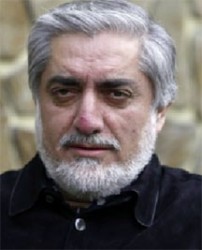KABUL, (Reuters) – The United States warned yesterday that it would withdraw financial and security support from Afghanistan if anyone tried to take power illegally, as supporters of presidential candidate Abdullah Abdullah rallied in Kabul for a parallel government.

Preliminary results announced on Monday gave Ashraf Ghani, a former World Bank official, 56.44 percent in the run-off on June 14, but Abdullah immediately rejected the outcome, saying the vote had been marred by widespread fraud.
Thousands of Abdullah’s supporters gathered in the capital Kabul, demanding that he form a parallel government, a move likely to plunge a country already beset by deep ethnic divisions into even greater disorder.
Underscoring the magnitude of the crisis, Abdullah said U.S. Secretary of State John Kerry, who is currently in Beijing, would visit Kabul on Friday.
In a sharp warning, Kerry said there was no justification for violence or “extra-constitutional measures”.
“I have noted reports of protests in Afghanistan and of suggestions of a ‘parallel government’ with the gravest concern,” he said in a statement issued by the U.S. embassy.
“Any action to take power by extra-legal means will cost Afghanistan the financial and security support of the United States and the international community.”
Afghanistan depends on foreign donors to fund everything from roadbuilding to schoolteachers’ salaries and security. The United States pays the lion’s share of all international aid.
“COUP AGAINST THE PEOPLE”
Abdullah has accused President Hamid Karzai, who is stepping down after 12 years, of helping to rig the vote in favour of Ghani, describing it as a “coup” against the people.
The standoff has quashed hopes for a smooth transition of power, a concern for the West as most of the U.S.-led foreign forces withdraw this year.
On a visit to India, British Foreign Secretary William Hague drew parallels with Iraq, where an al Qaeda offshoot has seized swathes of territory, calling on both Afghan candidates to ensure a constitutional and legitimate transfer of power.
“Iraq has suffered from a failure to have a significantly inclusive government in recent years,” he said, “… and I hope Afghanistan will learn from that failure.”
It is not clear whether Abdullah, who is popular among the powerful Tajik community in the north, would be able to control his supporters if the crisis escalated.